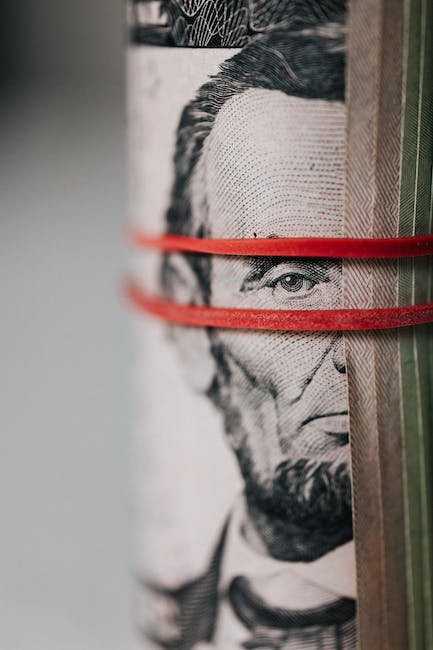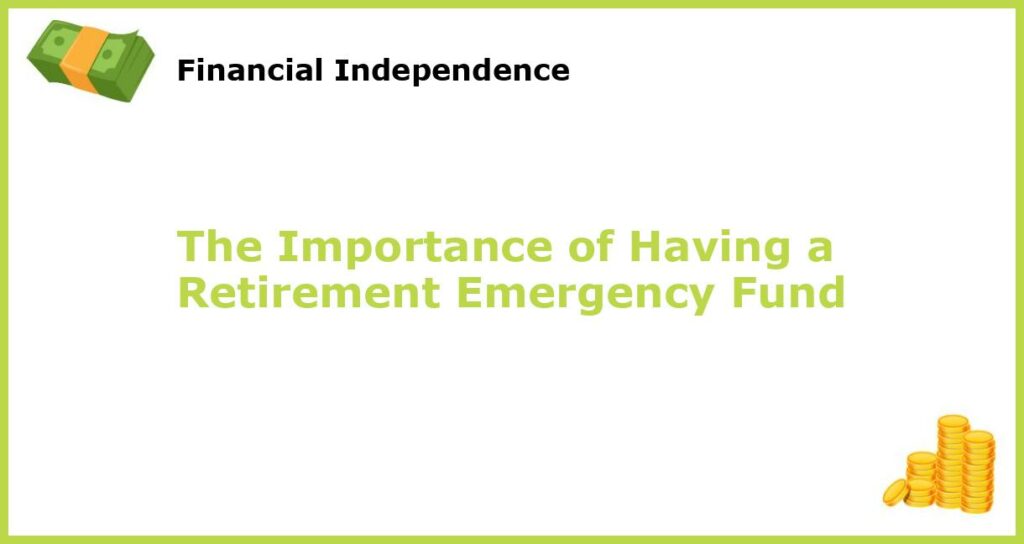Retirement is a time when you should be able to take it easy and enjoy life. After all, you’ve spent decades working and saving, and now it’s time to relax. However, unexpected expenses can quickly throw a wrench in your plans, leaving you stressed and anxious. That’s why having a retirement emergency fund is so important.
Unexpected Expenses Happen

As you get older, unexpected expenses become more and more common. You never know when you might have a medical emergency or need a major car repair. These expenses can quickly drain your retirement savings, leaving you in a financial bind. But with an emergency fund, you can rest easy knowing you have a cushion to fall back on.
In addition to medical emergencies and car repairs, unexpected living expenses can also arise. For example, you may need to make sudden repairs to your home, or you may need to move to a new living situation. All of these things can be costly, but an emergency fund can help soften the blow.
Social Security May Not be Enough

Many people rely on Social Security as their sole source of income during retirement. However, Social Security benefits may not be enough to cover all of your expenses, especially unexpected ones. An emergency fund can provide the additional funds you need to manage unexpected expenses or changes in your living situation.
Another challenge with relying solely on Social Security is that it may not always be available. Social Security faces financial challenges that could result in benefit cuts or other changes in the future. By having an emergency fund in place, you can be prepared for any sudden changes that may occur.
Investments are Not Guaranteed

Investments can be an excellent source of income during retirement, but they’re not without risk. Market fluctuations can have a significant impact on your retirement savings, leaving you with less than you anticipated. By having an emergency fund, you can weather these fluctuations without putting your retirement at risk.
Even if your investments perform well, unexpected expenses can still arise that deplete your savings. Having an emergency fund gives you a backup plan, so you don’t have to rely solely on your investments to get you through difficult times.
Peace of Mind

When you have an emergency fund, you’ll have peace of mind knowing that you’re prepared for unexpected expenses. The last thing you want in retirement is to worry about money all the time. Instead, you should be able to focus on enjoying your retirement. An emergency fund can help you do just that.
Without an emergency fund, unexpected expenses can lead to stress and anxiety. You may be forced to cut back on the things you enjoy in order to make ends meet. But with an emergency fund, you can continue enjoying your retirement without having to worry about your finances.
Stay Independent

By having an emergency fund, you’ll be able to maintain your independence longer. If you have unexpected expenses, you may be forced to rely on family or friends for financial assistance. That can place a strain on your relationships and make you feel like a burden. But an emergency fund can help you avoid that situation and maintain your independence.
An emergency fund can also help you avoid having to make difficult choices. For example, without an emergency fund, you may have to choose between paying for a necessary medical procedure or paying for your living expenses. But with an emergency fund, you’ll have the funds you need to cover both.
Retirement Should be Enjoyable

Retirement is a time to enjoy life and pursue your passions. Whether you want to travel, take up a new hobby, or spend more time with family and friends, you should be able to do so without worrying about money. An emergency fund can help ensure that unexpected expenses don’t derail your plans.
Without an emergency fund, unexpected expenses can eat away at your retirement savings, leaving you with less money to pursue the things you enjoy. But with an emergency fund, you’ll have the funds you need to protect your retirement lifestyle.
Take Advantage of Opportunities
Having an emergency fund also gives you the flexibility to take advantage of opportunities that come your way. For example, if a great travel opportunity arises, you’ll be able to jump on it without worrying about the financial impact. Similarly, if you want to invest in a new business venture, you’ll have the funds you need to do so.
Without an emergency fund, you may miss out on these opportunities because you don’t have the funds to pursue them. But with an emergency fund, you’ll have more freedom to live life on your terms.
Be Prepared for the Worst-Case Scenario
While we don’t like to think about worst-case scenarios, they can happen. A major medical emergency, a natural disaster, or a sudden change in your living situation can all have a significant impact on your finances. An emergency fund can provide the safety net you need to get through these difficult situations.
By having an emergency fund, you’ll be prepared for anything that comes your way. You won’t have to worry about how you’ll pay for unexpected expenses, and you can focus on taking care of yourself and your loved ones.
Start Saving Early
The earlier you start saving for an emergency fund, the better off you’ll be. Even if you’re years away from retirement, you should start saving now. The longer you wait, the harder it will be to build up an adequate emergency fund.
When you’re saving for an emergency fund, it’s important to remember that every little bit helps. Even if you can only save a small amount each month, it’s better than nothing. Over time, those small contributions will add up to a significant emergency fund.
Consult with a Financial Advisor
If you’re not sure how much you need to save for an emergency fund, or if you’re not sure where to invest your money, it’s a good idea to consult with a financial advisor. They can help you determine how much you need to save in order to be adequately prepared for unexpected expenses.
A financial advisor can also help you choose the best investment vehicles for your emergency fund. They can help you balance risk and reward, and they can help you protect your savings from market fluctuations.







